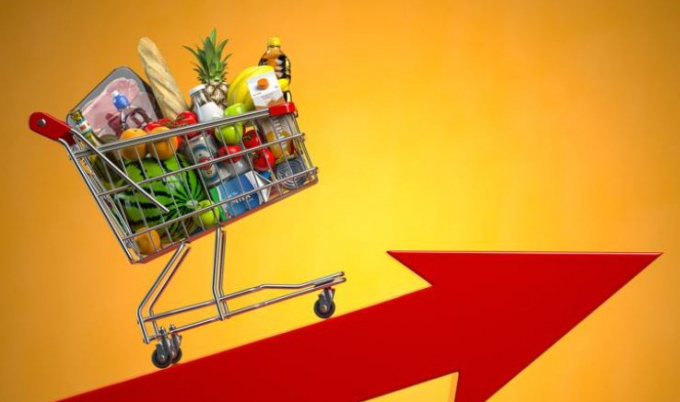June 19, 2025 | 18:40 GMT +7
June 19, 2025 | 18:40 GMT +7
Hotline: 0913.378.918
June 19, 2025 | 18:40 GMT +7
Hotline: 0913.378.918

Photo: Gettyimagesbank
The sustained price hike in oil and raw materials lifted by a recovery in demand could lead to across-the-board increases in the prices of key consumer goods, compounded by lingering supply-side uncertainties that have boosted prices of agricultural produce over the past year.
Further advancing this is a steady influx of liquidity brought about by emergency fiscal spending put in place to weather the COVID-19 pandemic, as indicated by record-low borrowing costs and extra stimulus packages financed in part by debt.
Whether the Bank of Korea will make an upward revision of its consumer prices estimate in August remains to be seen. The central bank said Thursday that inflation for this year would be at the low- to mid- 2 percent range, up from 1.8 percent projected in May. It is a further jump from 1.3 percent estimated in February.
Data from Statistics Korea showed the consumer price index increased 2.4 percent in June, year-on-year, down 0.1 percent from the previous month.
The inflation figure overshot the central bank target of 2 percent for the past three consecutive months. The increase for the first six months of this year averaged 1.8 percent. The increase in the April-June period was 2.5 percent, year-on-year, the highest quarterly figure since the first quarter of 2012.
The nearly decade-high figure was driven by price jumps in personal services and agricultural produce.
Egg prices spiked 54.9 percent year-on-year in June, up further from a 45 percent jump in May. June's figure was the highest increase since July 2017 when it soared 64.8 percent. Fruit prices rose 22.2 percent, while vegetables rose 5.6 percent.
Indicative of further price rises in infrequently purchased daily necessities in the months to come, is an announcement made by Ottogi which plans to increase the price of its ramen products 11 percent next month.
The decision comes 13 years after the last price hike in April 2008. The Korean conglomerate attributed the decision to a 33 percent jump in wheat prices and a 42 percent rise in palm oil prices over the past year.
"Inflation concerns will deepen in the coming months," Hyundai Research Institute Deputy Director for Economies Ju Won said. "Oil prices are likely to surge in the coming months and manufacturers will have little choice but to increase prices to limit a dent in corporate profits."
However, Korea Development Institute Macroeconomic Analysis and Forecasting Director Jung Kyu-chul views the situation differently.
"The inflation over the past few months should be transitory, since private consumption has not fully recovered to its pre-pandemic strengths with the recovery varying by industry,"
First vice finance minister Lee Eog-weon said July 2 that the upward inflationary pressure on the supply side will ease in the latter half of the year and the figure will hover around 2 percent in the second half.
According to the central bank, M2, a measure of money supply, rose to an all-time high of 3.385 quadrillion won ($2.9 trillion) in May, up 21.4 trillion won, or 0.6 percent from a month earlier.
(Korea Times)

(VAN) Poultry production in Poland, which has only started recovering from devastating bird flu outbreaks earlier this year, has been hit by a series of outbreaks of Newcastle disease, with the veterinary situation deteriorating rapidly.

(VAN) Extensive licensing requirements raise concerns about intellectual property theft.

(VAN) As of Friday, a salmonella outbreak linked to a California egg producer had sickened at least 79 people. Of the infected people, 21 hospitalizations were reported, U.S. health officials said.

(VAN) With the war ongoing, many Ukrainian farmers and rural farming families face limited access to their land due to mines and lack the financial resources to purchase needed agricultural inputs.

(VAN) Vikas Rambal has quietly built a $5 billion business empire in manufacturing, property and solar, and catapulted onto the Rich List.

(VAN) Available cropland now at less than five percent, according to latest geospatial assessment from FAO and UNOSAT.

(VAN) Alt Carbon has raised $12 million in a seed round as it plans to scale its carbon dioxide removal work in the South Asian nation.